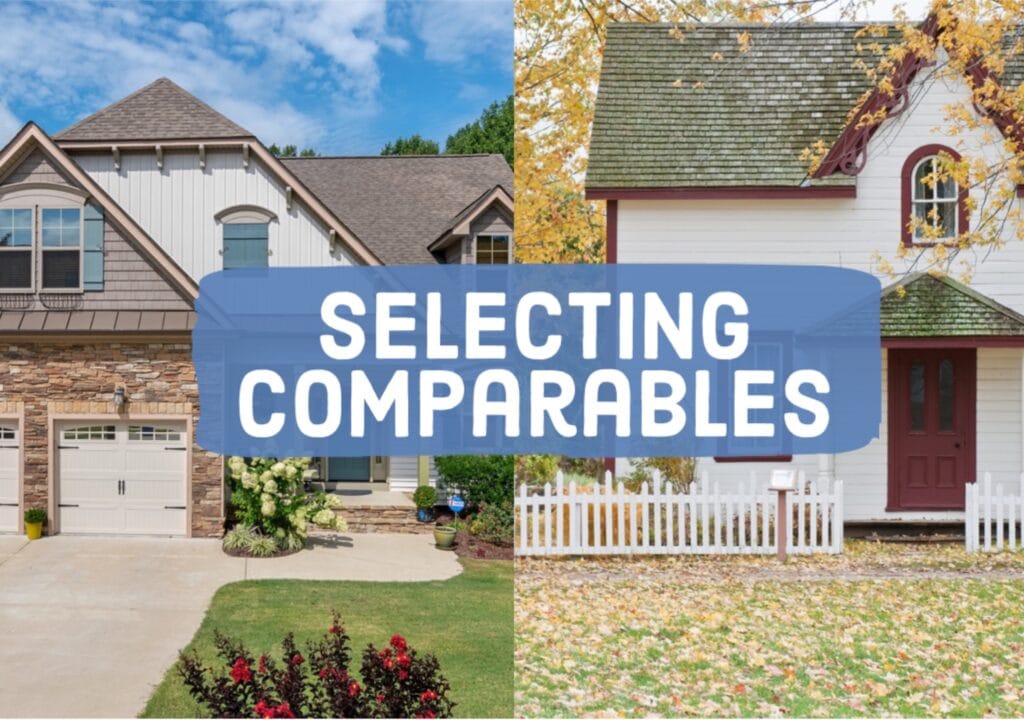
Understanding Appraisal Comparable Guidelines:
What Are Comparables?
In residential appraisals, the primary method for assessing value involves analyzing comparable properties—often referred to as “comps.” These are recent sales or listings that closely resemble the subject property, usually found within the same neighborhood. The more alike these comps are, the more reliable the appraisal will be.
In neighborhoods with a variety of similar homes, appraisers have an easier time finding comps. For example, in a planned community with different house models, finding exact matches is more feasible than in more rural areas, where comparable properties may be few and far between.
Key Guidelines for Selecting Comparables
While there are no strict legal requirements for choosing comps, certain best practices have emerged that appraisers generally follow:
1. Location
The property’s location is paramount. Comps should ideally be within one mile of the subject property and in similar neighborhoods. Using properties from significantly different areas can lead to inaccurate valuations, especially if the appraiser is not familiar with those neighborhoods.
2. Lot Size
While there’s no specific percentage for lot size variation, appraisers consider usability and topography along with size. For instance, the value of a sloping lot may differ from a flat one, even if the sizes are comparable.
3. View
The type of view a property has can significantly influence its value. Properties with desirable views—like water or cityscapes—are generally worth more. Appraisers should look for comps with similar views to ensure accurate comparisons.
4. Condition and Quality
Condition refers to the overall maintenance and updates of the property, while quality relates to the building materials used. Appraisers categorize both on a scale from excellent to poor, and it’s important to find comps that are close in both condition and quality to minimize valuation discrepancies.
5. Size (GLA)
The Gross Living Area (GLA) is another critical factor. A common guideline is to find comps that are within 25% larger or smaller than the subject property. Going beyond this range can complicate adjustments and affect the valuation.
Best Practices for Selecting Comps
- Distance: Aim for comps within a one-mile radius, ideally in the same neighborhood.
- Sale Date: Seek comps that have sold within the last six months. If those are lacking, look further back in time.
- Closed Date: Only use properties that closed before the appraisal’s effective date for sold comparables.
- Bracketing: It’s beneficial to include comps that highlight superior and inferior features of the subject property, ensuring a balanced comparison.
- Adverse Influences: Consider any negative factors that may affect the property’s value, and look for other comps that have similar conditions.
Conclusion
While no rigid rules govern the selection of comparables in appraisals, adhering to established guidelines is essential for achieving accurate valuations. The focus should always be on finding the most similar, recent, and nearby properties to ensure a fair assessment of your home’s value.
FAQs About Appraisal Comparables
Should I provide the appraiser with comps?
Yes, appraisers appreciate any information clients can offer, especially if it includes relevant recent sales that may have been overlooked.
How far back do appraisers look for comps?
The more recent the sales data, the better. Appraisers typically start with the last 3-6 months and may extend their search up to a year if necessary.
What is the maximum distance an appraiser will go for comps?
Appraisers prefer comps within a one-mile radius, but they may go further if needed to find relevant properties.
Where do appraisers source their comps?
Most appraisers rely on their local Multiple Listing Service (MLS) for accurate and comprehensive sales data.
What types of comps are used in appraisals?
Appraisers select the most similar, recent, and geographically close properties, focusing on those that potential buyers would consider.
Whether you’re a real estate agent, seller, or buyer, our expert appraisers are here to assist you in making informed decisions. Contact us today to learn how we can support your real estate needs.

